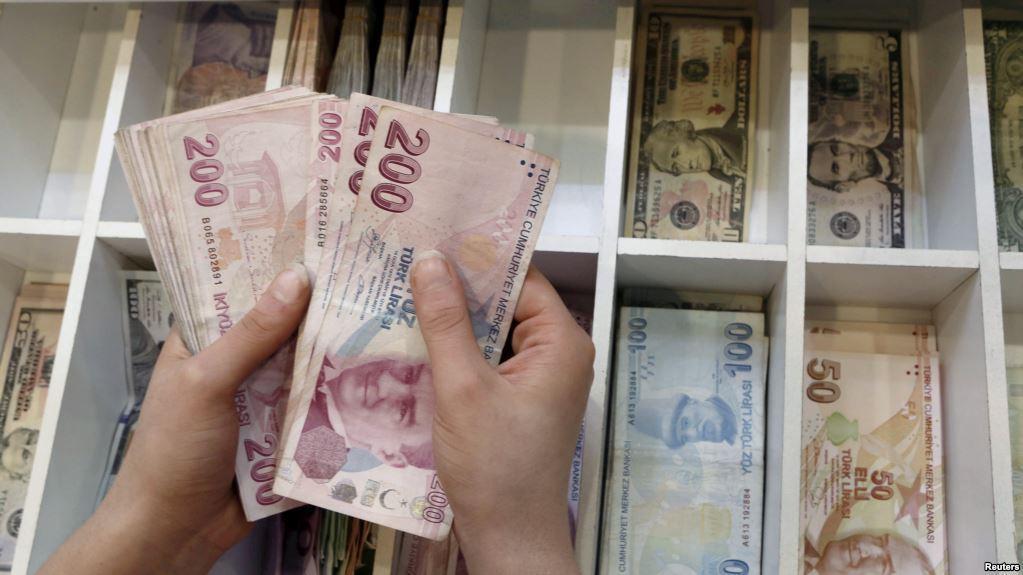
Turkish markets rallied on June 25 as investors bet on Recep Tayyip Erdoğan's presidential election victory bringing political stability, setting aside any concerns over the direction of econTurkish markets surrendered early gains on June 25 as concerns over the direction of economic and monetary policy weighed on sentiment, after President Recep Tayyip Erdoğan and his Justice and Development Party (AKP) won presidential and parliamentary elections.
Erdoğan emerged triumphant overnight from his biggest electoral challenge in 15 years, giving him the sweeping executive powers he has long sought and extending his grip on the nation of 81 million until at least 2023.
The lira weakened slightly to 4.6695 against the dollar by 1006 GMT from Friday’s close of 4.6625. It had firmed to as much as 4.5375 in early trading.
“In the short term, markets may be relieved that a period of political instability has been avoided,” said Jason Tuvey, senior emerging markets economist at Capital Economics, as quoted by Reuters.
“But any rally could quickly go into reverse if President Erdoğan uses his strengthened position to pursue looser fiscal and monetary policy, as we fear is likely,” Tuvey added.
The main BIST 100 stock index was flat at 95,818 points, having opened more than 3.5 percent higher. The 10-year benchmark bond yield rose to 16.38 percent from Friday’s close of 16.29 percent, while the two-year yield fell to 18.98 percent from 19.18 percent.
Turkey’s dollar-denominated bonds maturing 2022 and beyond gained, with the 2040 issue chalking up its biggest daily gains since 2013.
Erdoğan took 52.6 percent of the vote in the presidential race with almost all votes counted. His AKP took 42.5 percent in the parliamentary election and its nationalist allies beat expectations with 11.1 percent, giving their alliance a legislative majority.
Investors welcomed the prospect of a stable working relationship between the president and the new parliament, although concerns remained over Erdoğan’s policy promise.
The lira has lost 18 percent against the dollar this year, mainly due to worries about the Central Bank’s independence in the face of increased influence from Erdoğan, who wants lower interest rates to boost economic growth.
“The president has promised to force down interest rates. These comments suggest that the central bank’s monetary policy independence remains at risk. Additionally, fiscal pressures may continue ahead of March 2019 local elections,” said Phoenix Kalen, a strategist at Societe Generale, in a note to clients.
Structural reforms
Turkey’s central bank has delivered 500 basis points of tightening since late April as it seeks to put a floor under the lira in the face of double-digit inflation.
Piotr Matys, an emerging markets FX strategist said markets would be sensitive to any fresh comments by Erdoğan on the role of the central bank and indications of political interference.
“Looking further ahead, Turkey requires structural reforms to reduce its chronic reliance on speculative capital inflows to finance the current account deficit,” he added.
Concerns over protectionism
Meanwhile, there were few bright spots across emerging markets on June 25, with investors spooked by heightening prospects of a trade war between Washington and Beijing after a Wall Street Journal report that U.S. President Donald Trump plans to bar many Chinese companies from investing in U.S. technology firms and block additional technology exports to China.
“One of the things that has helped emerging markets was the synchronized improvement in global growth - you had both developed markets growth and emerging markets growth - and that is being challenged by concerns about global trade wars,” said Markus Schneider, EM economist at Alliance Bernstein.
“We could see a structural break in how some of the most important allies, i.e. Europe and the U.S., trade with each other, and that’s not positive for some of the major emerging markets.”
Emerging stocks painted a gloomy picture, with MSCI’s emerging benchmark tumbling more than 1 percent in early trade to a nine month low.omic and monetary policy.